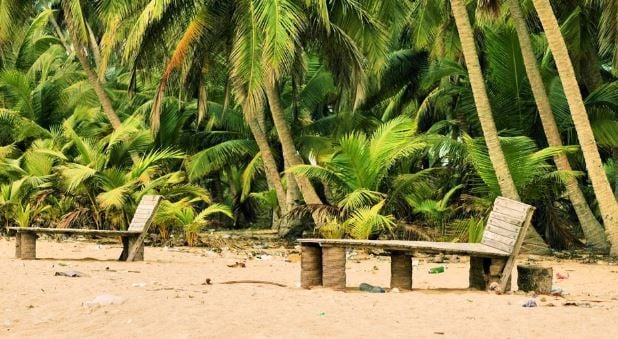Ibeju-Lekki is bounded in the north by Ogun state and in the west by Eti-Osa local government. It is bounded in the east by Epe and its southern ends join it to the Atlantic Ocean.
Prior to its creation, Ibeju-Lekki was treated as a backwater suburb to Epe Central and North.
However, the existence of Ibeju-Lekki could be traced back to 1990 during the local government creation exercise by then Nigeria head of state, Ibrahim Babangida. It was one of the four LGAs created in Lagos state and one of the 289 created in the country that year.
It is regarded as one of the fastest growing local government areas in Africa particularly because of the Lekki Free Trade Zone.
Population and tribe
With the over 80 towns and villages, the people of Ibeju-Lekki are mainly Yoruba-speaking.
Some of the prominent communities in Ibeju-Lekki include Ojuoto, Abijo, Orimedu, Awoyaya, Eputu, Lakowe, Bogije, Sapati, Igando-Oloja, Arapagi, Oke-odo Elemoro, Akodo, Magbon-Alade, and Eleko.
Food
There are many rivers, creeks and lagoons in the area and the Ibeju-Lekki people don’t joke with seafood.
Eja Osan, Epiya, Lamisoro, Obokun, among others, are usually served with meals.
As a first timer visiting the area, you will be welcome with the special fish soup called ‘Imooyo’.
One unique thing the community can boast of is the freshness of every seafood.
Ambiance
Ibeju-Lekki is home to lagoon islands such as Arapagi, Ita-Oko and Refugee islands where tourists can visit to relax. The islands are known for a generous presence of palm and coconut trees under which visitors can leisurely unwind.
Tourist attractions
Ibeju-Lekki is a tourist’s haven; from Eleko Beach to Awolowo Prison and the popular La Campagne Tropical Resort.
La Campagne Tropicana: Sitting pretty on 68 hectares of land with beautiful aesthetic, the resort offers traditional experiences to tourists such as the unique way of salutation, the wooden room design, the talking drum wake-up call, and the must-visit Yoru-Bar.
Awolowo Prison Museum: Located in Lekki Town, the museum was the detention centre of Obafemi Awolowo in 1962 when he was found guilty of conspiring to overthrow the Nigerian government.
The museum, which once belonged to a Portuguese slave merchant, is home to pieces of items from Awolowo’s prison term. The museum aims to take you on a walk through his prison journey.
The remains of structures of the slave trade era still remain at the compound – including the Point of No Return and the underground prison where slaves were kept before they were sold abroad. The grave of Mr. Lecqi also still survives. He was said to have died from malaria and was buried upright.
Copyright 2024 TheCable. All rights reserved. This material, and other digital content on this website, may not be reproduced, published, broadcast, rewritten or redistributed in whole or in part without prior express written permission from TheCable.
Follow us on twitter @Thecablestyle

